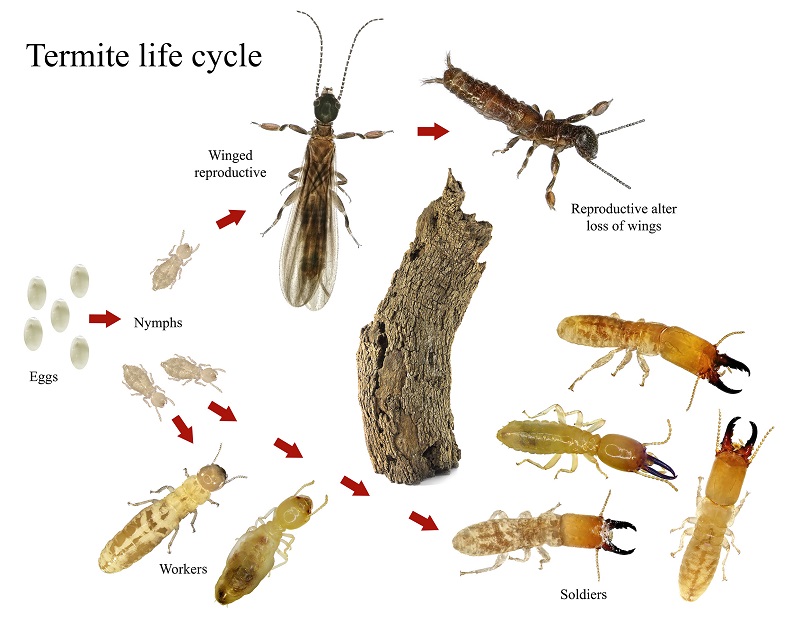Expert Termite Control Services: Secure Your Home from Termite Damages
Expert Termite Control Services: Secure Your Home from Termite Damages
Blog Article
Environmental Influence of Pest Control: Balancing Performance With Sustainability
The environmental effect of parasite control is a critical problem that calls for a delicate balance between attaining efficiency in taking care of parasites and guaranteeing sustainability of our ecosystems. From the use of dangerous chemicals that permeate right into our dirt and water to the unintentional effects on non-target types, the effects of standard bug control practices are significant.
Dangerous Chemicals in Bug Control
The utilization of harmful chemicals in parasite control postures significant environmental and health and wellness threats that warrant careful consideration and reduction strategies. Herbicides, pesticides, and chemicals are frequently utilized to get rid of pests, yet their prevalent application can cause unplanned effects. These chemicals can contaminate dirt, water resources, and the air, impacting not only the targeted insects however likewise helpful insects, wild animals, and people.

To deal with these dangers, incorporated bug management (IPM) techniques are being promoted as a more sustainable alternative. IPM entails a mix of approaches such as organic control, environment adjustment, and the targeted usage of chemicals as a last option (ant control clemmons nc). By taking on an all natural strategy to pest control, we can lessen the environmental and health and wellness effects connected with dangerous chemicals while efficiently managing pest populaces
Influence on Non-Target Types
Thinking about the unintentional effects of bug control methods, the influence on non-target varieties is a critical facet that needs complete assessment. While bug control procedures aim to target details bugs, other organisms in the ecosystem might be unintentionally affected. Non-target types, including valuable bugs, birds, creatures, and also plants, can endure direct or indirect injury from chemical applications or biological control methods.
Insecticides created to deal with a certain bug pest may harm pollinators like or all-natural killers such as ladybugs. Organic control representatives, if not species-specific, can posture threats to unplanned targets, interfering with the ecological balance.
To alleviate the effect on non-target types, integrated bug monitoring (IPM) approaches that stress an all natural method to pest control are advised. These methods prioritize making use of environmentally friendly techniques, decreasing damage to advantageous organisms while effectively managing pest populaces. Performing complete threat analyses and checking the results of bug control efforts are important actions in guarding non-target types and promoting total ecological community health and wellness.
Dirt and Water Contamination
Unexpected ecological consequences of insect control methods prolong beyond influencing non-target types, with substantial effects for soil and water contamination. Pesticides, herbicides, and chemical plant foods utilized in insect control can seep into the dirt and contaminate groundwater, positioning a threat to both earthbound and water environments. Dirt contamination can interfere with the balance of microorganisms crucial for nutrition cycling and plant development, resulting in decreased dirt fertility and productivity. These chemicals can continue in the atmosphere for extended durations, building up in the dirt and potentially going into the food chain.
Water contamination is one more essential issue associated with insect control techniques. To alleviate soil and water contamination from insect control activities, integrated bug administration methods that prioritize sustainability and reduce chemical inputs are important.
Air Contamination From Pesticide Usage
Direct exposure to air-borne pesticides during agricultural applications postures a considerable worry for air pollution control measures. When chemicals are splashed onto crops, they can volatilize into the air and form unpredictable natural compounds (VOCs) and various other airborne pollutants. These chemicals can contribute to the development of ground-level ozone, a major element of smoke that can have harmful effects on human wellness, crop performance, and general air high quality. Additionally, chemical drift, where pesticides are lugged by the wind to unexpected areas, can cause the contamination of neighboring ecological communities and water bodies.

Approaches for Sustainable Insect Control
In the world of farming practices, implementing lasting pest control approaches is vital for keeping environmental equilibrium and guarding crop yields. Sustainable insect control highlights using eco-friendly methods to manage insect populations successfully while minimizing harm to non-target microorganisms and environments. Integrated Parasite Monitoring (IPM) is a widely adopted method that integrates biological, social, physical, and chemical control approaches to achieve lasting parasite monitoring remedies.
One trick technique in sustainable parasite control is advertising biodiversity within agroecosystems. By boosting all-natural opponents of bugs, such as parasitoids and predators, farmers can minimize the demand for artificial pesticides. Crop rotation and diversification are likewise efficient methods to interrupt pest life cycles and create much less favorable conditions for pests to grow. In addition, utilizing pest-resistant crop selections and utilizing techniques like catch chopping can help in reducing parasite stress without relying greatly on chemical interventions. Ultimately, by incorporating these lasting insect control strategies, farmers can attain an equilibrium between pest monitoring effectiveness and environmental stewardship.
Final Thought
To conclude, the environmental influence of parasite control methods should be meticulously thought about to stabilize performance with sustainability. Harmful chemicals made use of in parasite control can bring about dirt and water contamination, air contamination, and harm non-target species - ant control services. It is crucial to implement sustainable insect control strategies to lessen these negative impacts on the atmosphere and advertise a much healthier ecological community for future generations
By taking on an alternative strategy to pest control, we can reduce the environmental and health and wellness impacts connected with hazardous chemicals while effectively taking care of pest populations.

To alleviate the air pollution triggered by chemical use, it is necessary to take on integrated this parasite administration techniques that prioritize the usage of non-chemical insect control methods, such as plant rotation, natural predators, and resistant crop ranges. Sustainable pest control emphasizes the usage of environmentally pleasant techniques to manage pest populations effectively while reducing damage to non-target microorganisms and communities. Integrated Insect Administration (IPM) is a commonly embraced method that incorporates biological, social, physical, and chemical control methods to achieve lasting parasite monitoring solutions.
Report this page